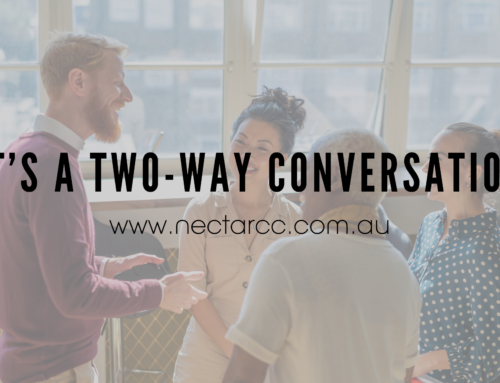Like it or not, the age of the virtual event is well and truly upon us. Let’s be clear, online events will never completely replace the experience of a live one. However, if well-executed, they can certainly serve to enhance a live event and offer opportunities for audience expansion, valuable data insights and diversification of revenue streams, making virtual events a very exciting prospect for our industry in these bleak pandemic times.
As a result of adversity and necessity it appears that virtual events have become, almost overnight, more accepted. These are still early days in the online event evolution but rather than resist virtual events for fear that they will cannibalise live ones or reduce tried and true revenue generation, now is the time we should be taking notice of the opportunities they present for event planners.
So, based on the tsunami of new information over the past few weeks and my trusty crystal ball, here are my picks for where the opportunity lies with virtual events:
Open up new audiences
The virtual event essentially eliminates geographical boundaries, meaning events can now reach a much larger, wider audience. This doesn’t only mean attracting potential delegates from outside your normal geographic catchment. These could be delegates who cannot physically travel to the destination or who are not able to take two to three days out of their work or family schedule. In the post-COVID19 age these could also be delegates who are not comfortable being at a large gathering or who are from vulnerable groups within our community. This ultimately makes an event more widely accessible, thereby extending the reach of the event.

Revenue
The potential to grow the audience without the corresponding onsite costs is the most obvious opportunity to increase revenue. At this early stage the jury is still out as to how much you can charge a virtual delegate versus a physical one. This is where if the content is good enough, you should be able to attract an audience willing to pay to participate virtually. Further, this content can effectively ‘keep on giving’ by being available for purchase long after the live event is over. Virtual and hybrid events also offer opportunities for creative ticketing strategies, enabling delegates the option to purchase just the components that interest them. This ability will also serve to broaden the audience and yield rich insights into which sessions (or functions) have the most appeal.
Virtual and hybrid events also have the potential to turn the traditional conference sponsorship model on it’s head. Broader audiences, content longevity, alignment with marketing automation technology, richer data insights and higher profile speakers (more on that later) could make for a more valuable sponsorship proposition for a broader range of partners. Read more about the potential of virtual event sponsorship.

The ability to include higher profile speakers
How often have you sourced an amazing speaker in XYZ country only to find that the addition of a business class airfare, accommodation and incidentals to their speaking fee, pushes them way beyond your event budget? A well-executed virtual or hybrid event could utilise speakers from anywhere, live streamed into the event. This makes high profile or time poor international keynotes more accessible, delivers the insights your audience wants to hear and opens up valuable sponsorship opportunities.
Better content
There is a convincing argument that virtual and more specifically, hybrid events, will inspire higher quality content. Audience experience centred programs will be paramount to engage and drive revenue and event producers will now need to think about the ‘broadcastability’ of their content. This could include programming a mix of live and on-demand sessions and creating quality content that lasts well beyond the closing of the event. This content of course can then be used in post event marketing, follow-up education, membership drives and sponsorship procurement.
Data
The data goldmine presented by virtual events is actually what event planners should be most excited about. Events already collect valuable data through their registration and app platforms, however most organisers don’t take the time to analyse or utilise this information. Through the use of live polls, Q&A, chatbots, downloads and tracking, virtual events can yield richer insights into who is actually engaging and who isn’t, directly from the online event platform. This information along with the use of AI can also be used for hyper-personalization, delivering an even more engaging experience for the delegate and more targeted marketing for the organiser.
Exhibitions, by their very nature, have been seen as the live event experience most difficult to replicate virtually. After participating in a number of virtual exhibitions and reading recent case studies, the virtual or hybrid expo is brimming with ROI potential. The one thing exhibitions struggle with is providing solid measurement of return for exhibitors. The virtual trade show can provide more extensive lead capture, delegate insights and buying intent as this case study on the US National Kidney Foundation Conference, which switched to virtual in late March 2020, demonstrates.
It is also important to note that, after watching the lightning speed development of online event technology over the past two months, the ability to tap into the rich vein of data virtual events yield will only improve. Who knows what insights you will be able to gain in 12 months time?
Sustainability
The importance of event sustainability policies and practices has been growing over the past ten years. However, the uptake has been slow (did someone say token?) and sustainability is generally applied to areas such as reducing the use of single-use plastic, conference giveaways, recycling and food waste. Offering a virtual attendance option will address the sustainability elephant in the room the events industry has been struggling with, carbon emissions due to air travel.
Conclusion
The potential for virtual events to open the door to major event growth, expansion of audiences, more engaging content and valuable knowledge exchange far outweighs the short term reduction in live large gatherings. This technology could lead to new types of events and experiences, with conversations and meetings that would never have taken place previously. I’m going glass half full on virtual events, predicting an exciting future for those event planners willing to adapt and be brave enough to rethink the traditional live event model.
For more information on Nectar CC and how we can help plan and execute an online event for your business, please contact us on 1300 878 815.







